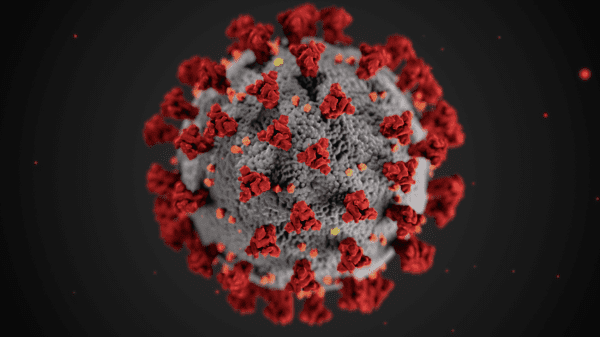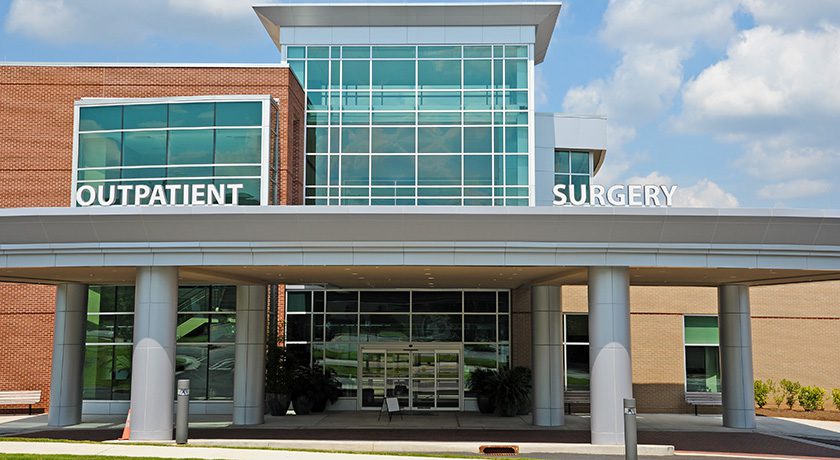

 Copy to clipboard
Copy to clipboard 
Last Updated: July 21, 2020
The COVID-19 pandemic is significantly disrupting the orthopedic market. The postponement of elective procedures and the economic toll on businesses are being recognized as companies significantly change their guidance.
Below is a list of company activities we tracked from mid-March to today, with the most recent updates being 2Q preliminary results from companies like Smith+Nephew, Integra LifeSciences and Conformis. Timely COVID-19 updates can also be found by following the short links below.
Company Updates
Jump to updates for a company by clicking on its name below:
- ATEC Spine
- Conformis
- ConMed
- Exactech
- Integra LifeSciences
- Medacta
- Medicrea
- Medtronic
- Nuvasive
- Orthofix
- OrthoPediatrics
- SeaSpine
- SI-BONE
- Smith+Nephew
- Stryker
- Vericel
- Zimmer Biomet
ATEC Spine
April 27, 2020
ATEC terminated the agreement to acquire EOS imaging after determining the transaction not feasible due to the negative market impacts of COVID-19.
April 8, 2020
ATEC is the latest company to withdraw its 2020 guidance. The company had a strong start to 2020, with first-quarter revenue growing between 25% and 26% according to unaudited preliminary results. While the company is observing social distancing and stay-at-home mandates, it also intends to prioritize the continued advancement of its product development pipeline.
ATEC instituted a voluntary salary-to-equity program that saved the company $750,000 in the second quarter to support payroll for hourly and underemployed salaried workers. A sick time donation program also lets employees forfeit accrued sick time to be used by colleagues deemed unable to work. To expand its cash runway, ATEC completed a $20 million draw on its credit facility with Squadron Medical Financial Solutions. “We believe that ATEC is the best-led and most highly focused pure-play spine company in the industry,” said David Pelizzon, President of Squadron Capital. “Our long-term support remains steadfast.”
Conformis
July 6, 2020
Conformis released preliminary revenue results for the second quarter. Total revenue declined 1% compared to the prior year, due to a $9.6 million royalty settlement. Global product sales for the quarter declined 50%, with U.S. sales falling 52%. The company also amended its credit agreement with Innovatus Lending Fund.
April 23, 2020
The company announced that it has accelerated its plan to return furloughed employees to work, due in large part to the $4.7 million loan Conformis received under the Paycheck Protection Program. The vast majority of employees will return to work as early as April 27.
April 20, 2020
The company announced it had entered into a $4.7 million promissory note with East West Bank under the Paycheck Protection Program offered by the U.S. Small Business Administration. The payment will help mitigate the negative financial and operational impacts of COVID-19. Under the terms of the program, all or a portion of the loan may be fully forgiven if the funds are used for payroll costs, interest on certain other outstanding debt, rent and utilities.
March 23, 2020
Conformis withdrew 2020 guidance and announced several measures to mitigate the impact of COVID-19 on its operations. It furloughed approximately one-third of its direct workforce and substantially all of its temporary force. All third shift workers have been furloughed. The company does not believe it is significantly at risk in terms of its supply chain.
Conformis President and CEO Mark Augusti believes that the company is well-positioned once the pandemic is under control, especially if backlogged procedures are moved to ASCs. However, he believes any recovery will be a gradual process due to patient fears and healthcare provider fatigue.
ConMed
March 20, 2020
ConMed pulled its 1Q20 and full-year 2020 guidance due to COVID-19 disruptions. The company had lowered its first-quarter growth estimate on March 10 to the range of 2% to 4% when the virus was still primarily in Asia. The expansion of the pandemic has limited ConMed’s ability to estimate the full impact, but the company does anticipate material disruptions for 2020.
Exactech
March 23, 2020
Exactech laid off 63 employees across all divisions. Remaining employees face tiered salary cuts as the company moves to cut costs. Spokeswoman Priscilla Bennet said, “With surgeries being canceled, so is our cash flow. For weeks, we’ve been doing everything we can to avoid getting to this.”
Integra LifeSciences
July 9, 2020
The company announced preliminary revenue results for the second quarter, with an expected year-over-year decline of -34%. Monthly sales improved sequentially throughout the quarter and Integra exited June at -15% compared to the prior year.
April 8, 2020
Integra also withdrew its 2020 guidance. Revenues in 1Q20 declined approximately 1.9% vs. the prior year and the company expects a more substantial decline in 2Q. Integra has initiated cost reduction measures including a hiring freeze, terminating third-party services and temporary contractor relationships, as well as rapidly reducing capital expenditures and discretionary spending. The company remains confident in the underlying strength of its markets and that growth will return after the pandemic recedes.
Medacta
April 6, 2020
The company declined to provide a 2020 outlook due to the COVID-19 pandemic. Medacta’s sales in January and February were very strong and in line with company expectations; however, March sales were heavily impacted and declined to growth in the low single digits. Over 270 employees have been working remotely since early March, and mitigation procedures have been instituted for remaining on-site staff. To further protect cash flow, the company decided not to distribute a dividend for 2019.
Medacta management anticipates that a market recovery could begin in late 2020 and proceed into 2021. They do not believe that the COVID-19 pandemic impacts mid- and long-term company fundamentals.
Medicrea
March 20, 2020
Medicrea has reorganized itself to weather a period of “almost no billings” through September 2020. Case postponements have been in effect since March 12 in France and Spain, and since March 16 in Belgium. The company notes the rate of postponements in the U.S. had been accelerating daily since March 17.
All French and Belgian employees, including all members of the executive team, have been placed on partial unemployment. The group has negotiated with its suppliers to postpone shipments until the third quarter and its landlords in Lyon and New York have deferred rent payments.
Medtronic
April 21, 2020
Given the timing of the pandemic’s spread and the company’s fiscal quarter, Medtronic’s results will reflect an additional month of negative impact compared to other companies. With the exception of trauma-related spine cases, the bulk of the company’s orthopedic business is considered more elective. Additionally, hospitals are deferring capital purchases that will impact the Mazor robotics platform – a significant contributor to quarterly spine sales.
Medtronic provided insight into COVID-19’s impact on their operations by geography:
- China represents around 7% of total company revenue. Weekly revenue in the region declined 50% through early March and 20% to 40% since, showing a slight recovery in the market.
- Western Europe (20% of revenue) began declining the week of March 23. Since then revenues have declined 20% to 30%, excluding customer bulk purchases.
- The United States (53% of revenue) impact started the week of March 16 and has averaged 60% weekly declines, excluding customer bulk purchases
- The rest of the world (20% of revenue) has been impacted to various degrees with the last few weeks averaging a decline of 40% to 50% vs. last year
Despite these declines, Medtronic’s employees are continuing to work amid mitigation efforts like routine facility cleaning, wearing PPE, social distancing and staggered breaks. The company has also rolled out a free virtual COVID-19 evaluation and monitoring tool through its Care Services Management business. Additionally, the company instituted several employee support programs including monetary rewards for business-critical employees who must report to a Medtronic facility, protection for field sales personnel losing significant income, an Emergency Paid Leave policy as well as increased contributions to its need-based Employee Emergency Assistance Fund.
Medtronic remains in a strong financial position with approximately $11 billion in cash and investment. Given this strength, the company is continuing to invest in R&D and salesforce. Many of Medtronic’s facilities are running at or near full capacity to provide support to the anticipated rebound in procedures during the market’s recovery period.
NuVasive
July 21, 2020
NuVasive announced preliminary 2Q20 sales in the range of $202 million to $205 million, a decline of approximately -30% compared to the $292.1 million in revenue for 2Q19. The company noted that widespread shutdowns of elective surgeries in April abated somewhat through May and June.
April 14, 2020
NuVasive withdrew its 2020 guidance and reported a preliminary, unaudited decline in the range of -5% to -5.7% in 1Q20 revenues compared to the prior year. As of March 31, the company had more than $500 million cash on hand and a $550 million revolving credit facility. While enacting spending control measures, NuVasive does intend to maintain its level of R&D investment during this period.
“NuVasive has a strong cash position, including more than $500 million in cash on hand at the end of the first quarter, and we are confident in the long-term opportunities for the Company. In the near-term, we expect to continue seeing lower elective procedure volumes as a result of the COVID-19 pandemic and government stay-at-home orders. The actions we are taking to control expenses will help ensure NuVasive is positioned to successfully navigate this market environment,” said J. Christopher Barry, chief executive officer of NuVasive.
Orthofix
April 9, 2020
Orthofix has withdrawn its 2020 guidance. For 1Q20, the company reported preliminary unaudited revenue between $104 million and $105 million, a decline of 4.7% to 3.8% compared to the prior year. While many of Orthofix’s procedures have been deferred, cases for acute spine, limb preservation and trauma continue to be performed. The company has also implemented virtual tools for service support relating to its Bone Growth Therapies devices as well as virtual surgeon training for the M6-C artificial disc.
Like its peers, Orthofix has instituted cost-saving measures including salary reductions. Orthofix President and Chief Executive Officer Jon Serbousek said, “We believe these temporary cost reductions and the steps we are taking to further strengthen our balance sheet will allow us to continue to execute on our strategic initiatives in the near term, and be well-positioned to provide our products to customers once elective surgery procedural volumes return to hospitals globally. I am proud of the team here at Orthofix and their ability to quickly adapt to changing conditions. We remain confident in the long term prospects for the business.”
OrthoPediatrics
March 30, 2020
The company has withdrawn its 2020 guidance of 22% to 24% growth and investment in set consignments in the range of $19 million to $21 million. The pandemic will significantly impact OrthoPediatric’s Scoliosis and Deformity segments, but the company does not expect the same level of disruption to its pediatric Trauma business.
Leadership expects the magnitude of the post-pandemic recovery to be limited only by operating room and surgeon scheduling capacity. OrthoPediatrics announced that it will not lay off any direct employees and continues to work with suppliers to assure the company is able to meet pent-up demand during the recovery.
SeaSpine
April 6, 2020
Unable to predict the extent and duration of the COVID-19 pandemic on its financial and operating results, SeaSpine has withdrawn its 2020 guidance. In addition to requiring all office-based employees to work from home, the company is containing costs in areas like clinical studies, consulting and product development. As of the end of March 2020, SeaSpine had approximately $105 million in cash and investments.
Preliminary results for 1Q20 saw the company’s U.S. spinal implants decline -3% to -4%, while U.S. biologics grew between 1% and 2%. Overall, SeaSpine expects first-quarter revenues to fall in the range of -1% to flat vs. 1Q19. Company President and CEO Keith Valentine said, “We believe the strength of our balance sheet, which includes $92 million of net proceeds raised in January 2020, will enable us to maintain operations to support our customers and their patients in the near-term and will allow us to capitalize on any future growth opportunities when surgery volumes return to pre-pandemic levels.”
SI-BONE
April 2, 2020
In addition to withdrawing 2020 guidance, SI-BONE has required all non-manufacturing employees to work from home. The company also introduced measures to minimize contact time between employees remaining on-site. SI-BONE has curtailed expenses and had $145 million in cash and marketable securities at the end of March 2020.
Smith+Nephew
July 1, 2020
Smith+Nephew announced it expects a revenue decline of -29% in the second quarter compared to the prior year. Sales accelerated throughout the quarter: -47% in April, -27% in May and -12% in June. Orthopedic reconstruction and sports medicine remain the most negatively impacted businesses for the company.
March 30, 2020
The company announced that it has withdrawn its 2020 guidance due to the uncertainty of COVID-19’s impact. Smith+Nephew expects 1Q revenues to be down around -8% with 2Q revenues facing a “substantial” decline. While elective procedures have begun again in China, they remain considerably below pre-pandemic levels. The company noted that it has a strong balance sheet with access to significant liquidity.
Roland Diggelmann, Chief Executive Officer of Smith+Nephew, said, “Looking beyond the immediate future, Smith+Nephew operates in attractive markets with excellent growth fundamentals. We are financially strong with a proven strategy and unique portfolio. Our major manufacturing and distribution facilities are all active and we are ready to meet pent-up demand when the time comes.”
Stryker
March 31, 2020
Stryker withdrew its 1Q and full-year 2020 guidance, citing the unprecedented measures taken to slow the spread of the pandemic including deferral of elective procedures and social contact restrictions. The company anticipates a significant negative impact on its operations and financial results.
Vericel
July 9, 2020
Vericel announced preliminary revenue results for the second quarter. MACI revenue declined -27% in the quarter compared to the prior year, but turned in a strong performance in June. MACI sales were down -84% in April and -37% in May, but increased +21% in June compared to 2019.
April 2, 2020
The company withdrew its 2020 guidance due to uncertainty around the COVID-19 pandemic but remains in a strong financial position. Vericel had $83 million in cash and investments and no debt as of March 31, 2020. MACI and Epicel product continues while all employees not directly involved in production are working from home.
In the first quarter, MACI revenue grew 21% over the prior year. Nick Colangelo, Vericel’s President and CEO, said, “While our MACI business has been impacted by the restrictions on elective surgical procedures, the fundamentals of our business remain strong. Prior to cancellations that occurred in the last two weeks of the quarter, MACI was on track to exceed revenue growth guidance and we believe that most patients will reschedule cases to the extent possible following this crisis.”
Zimmer Biomet
April 7, 2020
The company estimates first-quarter revenues declined -9.5% to -10.5% due to a sudden and significant global decline in elective procedure volumes. Zimmer Biomet expects these declines to persist through 2Q and, therefore, withdrew its 2020 full-year guidance.
The company is taking steps to reinforce business continuity in its manufacturing facilities and overall supply chain. Among the steps taken to reduce spending, compensation reductions have been implemented for the leadership team and board of directors. Zimmer Biomet President and CEO Bryan Hanson is foregoing 100% of his salary.
Last Updated: July 21, 2020
The COVID-19 pandemic is significantly disrupting the orthopedic market. The postponement of elective procedures and the economic toll on businesses are being recognized as companies significantly change their guidance.
Below is a list of company activities we tracked from mid-March to today, with the most...
Last Updated: July 21, 2020
The COVID-19 pandemic is significantly disrupting the orthopedic market. The postponement of elective procedures and the economic toll on businesses are being recognized as companies significantly change their guidance.
Below is a list of company activities we tracked from mid-March to today, with the most recent updates being 2Q preliminary results from companies like Smith+Nephew, Integra LifeSciences and Conformis. Timely COVID-19 updates can also be found by following the short links below.
Company Updates
Jump to updates for a company by clicking on its name below:
- ATEC Spine
- Conformis
- ConMed
- Exactech
- Integra LifeSciences
- Medacta
- Medicrea
- Medtronic
- Nuvasive
- Orthofix
- OrthoPediatrics
- SeaSpine
- SI-BONE
- Smith+Nephew
- Stryker
- Vericel
- Zimmer Biomet
ATEC Spine
April 27, 2020
ATEC terminated the agreement to acquire EOS imaging after determining the transaction not feasible due to the negative market impacts of COVID-19.
April 8, 2020
ATEC is the latest company to withdraw its 2020 guidance. The company had a strong start to 2020, with first-quarter revenue growing between 25% and 26% according to unaudited preliminary results. While the company is observing social distancing and stay-at-home mandates, it also intends to prioritize the continued advancement of its product development pipeline.
ATEC instituted a voluntary salary-to-equity program that saved the company $750,000 in the second quarter to support payroll for hourly and underemployed salaried workers. A sick time donation program also lets employees forfeit accrued sick time to be used by colleagues deemed unable to work. To expand its cash runway, ATEC completed a $20 million draw on its credit facility with Squadron Medical Financial Solutions. “We believe that ATEC is the best-led and most highly focused pure-play spine company in the industry,” said David Pelizzon, President of Squadron Capital. “Our long-term support remains steadfast.”
Conformis
July 6, 2020
Conformis released preliminary revenue results for the second quarter. Total revenue declined 1% compared to the prior year, due to a $9.6 million royalty settlement. Global product sales for the quarter declined 50%, with U.S. sales falling 52%. The company also amended its credit agreement with Innovatus Lending Fund.
April 23, 2020
The company announced that it has accelerated its plan to return furloughed employees to work, due in large part to the $4.7 million loan Conformis received under the Paycheck Protection Program. The vast majority of employees will return to work as early as April 27.
April 20, 2020
The company announced it had entered into a $4.7 million promissory note with East West Bank under the Paycheck Protection Program offered by the U.S. Small Business Administration. The payment will help mitigate the negative financial and operational impacts of COVID-19. Under the terms of the program, all or a portion of the loan may be fully forgiven if the funds are used for payroll costs, interest on certain other outstanding debt, rent and utilities.
March 23, 2020
Conformis withdrew 2020 guidance and announced several measures to mitigate the impact of COVID-19 on its operations. It furloughed approximately one-third of its direct workforce and substantially all of its temporary force. All third shift workers have been furloughed. The company does not believe it is significantly at risk in terms of its supply chain.
Conformis President and CEO Mark Augusti believes that the company is well-positioned once the pandemic is under control, especially if backlogged procedures are moved to ASCs. However, he believes any recovery will be a gradual process due to patient fears and healthcare provider fatigue.
ConMed
March 20, 2020
ConMed pulled its 1Q20 and full-year 2020 guidance due to COVID-19 disruptions. The company had lowered its first-quarter growth estimate on March 10 to the range of 2% to 4% when the virus was still primarily in Asia. The expansion of the pandemic has limited ConMed’s ability to estimate the full impact, but the company does anticipate material disruptions for 2020.
Exactech
March 23, 2020
Exactech laid off 63 employees across all divisions. Remaining employees face tiered salary cuts as the company moves to cut costs. Spokeswoman Priscilla Bennet said, “With surgeries being canceled, so is our cash flow. For weeks, we’ve been doing everything we can to avoid getting to this.”
Integra LifeSciences
July 9, 2020
The company announced preliminary revenue results for the second quarter, with an expected year-over-year decline of -34%. Monthly sales improved sequentially throughout the quarter and Integra exited June at -15% compared to the prior year.
April 8, 2020
Integra also withdrew its 2020 guidance. Revenues in 1Q20 declined approximately 1.9% vs. the prior year and the company expects a more substantial decline in 2Q. Integra has initiated cost reduction measures including a hiring freeze, terminating third-party services and temporary contractor relationships, as well as rapidly reducing capital expenditures and discretionary spending. The company remains confident in the underlying strength of its markets and that growth will return after the pandemic recedes.
Medacta
April 6, 2020
The company declined to provide a 2020 outlook due to the COVID-19 pandemic. Medacta’s sales in January and February were very strong and in line with company expectations; however, March sales were heavily impacted and declined to growth in the low single digits. Over 270 employees have been working remotely since early March, and mitigation procedures have been instituted for remaining on-site staff. To further protect cash flow, the company decided not to distribute a dividend for 2019.
Medacta management anticipates that a market recovery could begin in late 2020 and proceed into 2021. They do not believe that the COVID-19 pandemic impacts mid- and long-term company fundamentals.
Medicrea
March 20, 2020
Medicrea has reorganized itself to weather a period of “almost no billings” through September 2020. Case postponements have been in effect since March 12 in France and Spain, and since March 16 in Belgium. The company notes the rate of postponements in the U.S. had been accelerating daily since March 17.
All French and Belgian employees, including all members of the executive team, have been placed on partial unemployment. The group has negotiated with its suppliers to postpone shipments until the third quarter and its landlords in Lyon and New York have deferred rent payments.
Medtronic
April 21, 2020
Given the timing of the pandemic’s spread and the company’s fiscal quarter, Medtronic’s results will reflect an additional month of negative impact compared to other companies. With the exception of trauma-related spine cases, the bulk of the company’s orthopedic business is considered more elective. Additionally, hospitals are deferring capital purchases that will impact the Mazor robotics platform – a significant contributor to quarterly spine sales.
Medtronic provided insight into COVID-19’s impact on their operations by geography:
- China represents around 7% of total company revenue. Weekly revenue in the region declined 50% through early March and 20% to 40% since, showing a slight recovery in the market.
- Western Europe (20% of revenue) began declining the week of March 23. Since then revenues have declined 20% to 30%, excluding customer bulk purchases.
- The United States (53% of revenue) impact started the week of March 16 and has averaged 60% weekly declines, excluding customer bulk purchases
- The rest of the world (20% of revenue) has been impacted to various degrees with the last few weeks averaging a decline of 40% to 50% vs. last year
Despite these declines, Medtronic’s employees are continuing to work amid mitigation efforts like routine facility cleaning, wearing PPE, social distancing and staggered breaks. The company has also rolled out a free virtual COVID-19 evaluation and monitoring tool through its Care Services Management business. Additionally, the company instituted several employee support programs including monetary rewards for business-critical employees who must report to a Medtronic facility, protection for field sales personnel losing significant income, an Emergency Paid Leave policy as well as increased contributions to its need-based Employee Emergency Assistance Fund.
Medtronic remains in a strong financial position with approximately $11 billion in cash and investment. Given this strength, the company is continuing to invest in R&D and salesforce. Many of Medtronic’s facilities are running at or near full capacity to provide support to the anticipated rebound in procedures during the market’s recovery period.
NuVasive
July 21, 2020
NuVasive announced preliminary 2Q20 sales in the range of $202 million to $205 million, a decline of approximately -30% compared to the $292.1 million in revenue for 2Q19. The company noted that widespread shutdowns of elective surgeries in April abated somewhat through May and June.
April 14, 2020
NuVasive withdrew its 2020 guidance and reported a preliminary, unaudited decline in the range of -5% to -5.7% in 1Q20 revenues compared to the prior year. As of March 31, the company had more than $500 million cash on hand and a $550 million revolving credit facility. While enacting spending control measures, NuVasive does intend to maintain its level of R&D investment during this period.
“NuVasive has a strong cash position, including more than $500 million in cash on hand at the end of the first quarter, and we are confident in the long-term opportunities for the Company. In the near-term, we expect to continue seeing lower elective procedure volumes as a result of the COVID-19 pandemic and government stay-at-home orders. The actions we are taking to control expenses will help ensure NuVasive is positioned to successfully navigate this market environment,” said J. Christopher Barry, chief executive officer of NuVasive.
Orthofix
April 9, 2020
Orthofix has withdrawn its 2020 guidance. For 1Q20, the company reported preliminary unaudited revenue between $104 million and $105 million, a decline of 4.7% to 3.8% compared to the prior year. While many of Orthofix’s procedures have been deferred, cases for acute spine, limb preservation and trauma continue to be performed. The company has also implemented virtual tools for service support relating to its Bone Growth Therapies devices as well as virtual surgeon training for the M6-C artificial disc.
Like its peers, Orthofix has instituted cost-saving measures including salary reductions. Orthofix President and Chief Executive Officer Jon Serbousek said, “We believe these temporary cost reductions and the steps we are taking to further strengthen our balance sheet will allow us to continue to execute on our strategic initiatives in the near term, and be well-positioned to provide our products to customers once elective surgery procedural volumes return to hospitals globally. I am proud of the team here at Orthofix and their ability to quickly adapt to changing conditions. We remain confident in the long term prospects for the business.”
OrthoPediatrics
March 30, 2020
The company has withdrawn its 2020 guidance of 22% to 24% growth and investment in set consignments in the range of $19 million to $21 million. The pandemic will significantly impact OrthoPediatric’s Scoliosis and Deformity segments, but the company does not expect the same level of disruption to its pediatric Trauma business.
Leadership expects the magnitude of the post-pandemic recovery to be limited only by operating room and surgeon scheduling capacity. OrthoPediatrics announced that it will not lay off any direct employees and continues to work with suppliers to assure the company is able to meet pent-up demand during the recovery.
SeaSpine
April 6, 2020
Unable to predict the extent and duration of the COVID-19 pandemic on its financial and operating results, SeaSpine has withdrawn its 2020 guidance. In addition to requiring all office-based employees to work from home, the company is containing costs in areas like clinical studies, consulting and product development. As of the end of March 2020, SeaSpine had approximately $105 million in cash and investments.
Preliminary results for 1Q20 saw the company’s U.S. spinal implants decline -3% to -4%, while U.S. biologics grew between 1% and 2%. Overall, SeaSpine expects first-quarter revenues to fall in the range of -1% to flat vs. 1Q19. Company President and CEO Keith Valentine said, “We believe the strength of our balance sheet, which includes $92 million of net proceeds raised in January 2020, will enable us to maintain operations to support our customers and their patients in the near-term and will allow us to capitalize on any future growth opportunities when surgery volumes return to pre-pandemic levels.”
SI-BONE
April 2, 2020
In addition to withdrawing 2020 guidance, SI-BONE has required all non-manufacturing employees to work from home. The company also introduced measures to minimize contact time between employees remaining on-site. SI-BONE has curtailed expenses and had $145 million in cash and marketable securities at the end of March 2020.
Smith+Nephew
July 1, 2020
Smith+Nephew announced it expects a revenue decline of -29% in the second quarter compared to the prior year. Sales accelerated throughout the quarter: -47% in April, -27% in May and -12% in June. Orthopedic reconstruction and sports medicine remain the most negatively impacted businesses for the company.
March 30, 2020
The company announced that it has withdrawn its 2020 guidance due to the uncertainty of COVID-19’s impact. Smith+Nephew expects 1Q revenues to be down around -8% with 2Q revenues facing a “substantial” decline. While elective procedures have begun again in China, they remain considerably below pre-pandemic levels. The company noted that it has a strong balance sheet with access to significant liquidity.
Roland Diggelmann, Chief Executive Officer of Smith+Nephew, said, “Looking beyond the immediate future, Smith+Nephew operates in attractive markets with excellent growth fundamentals. We are financially strong with a proven strategy and unique portfolio. Our major manufacturing and distribution facilities are all active and we are ready to meet pent-up demand when the time comes.”
Stryker
March 31, 2020
Stryker withdrew its 1Q and full-year 2020 guidance, citing the unprecedented measures taken to slow the spread of the pandemic including deferral of elective procedures and social contact restrictions. The company anticipates a significant negative impact on its operations and financial results.
Vericel
July 9, 2020
Vericel announced preliminary revenue results for the second quarter. MACI revenue declined -27% in the quarter compared to the prior year, but turned in a strong performance in June. MACI sales were down -84% in April and -37% in May, but increased +21% in June compared to 2019.
April 2, 2020
The company withdrew its 2020 guidance due to uncertainty around the COVID-19 pandemic but remains in a strong financial position. Vericel had $83 million in cash and investments and no debt as of March 31, 2020. MACI and Epicel product continues while all employees not directly involved in production are working from home.
In the first quarter, MACI revenue grew 21% over the prior year. Nick Colangelo, Vericel’s President and CEO, said, “While our MACI business has been impacted by the restrictions on elective surgical procedures, the fundamentals of our business remain strong. Prior to cancellations that occurred in the last two weeks of the quarter, MACI was on track to exceed revenue growth guidance and we believe that most patients will reschedule cases to the extent possible following this crisis.”
Zimmer Biomet
April 7, 2020
The company estimates first-quarter revenues declined -9.5% to -10.5% due to a sudden and significant global decline in elective procedure volumes. Zimmer Biomet expects these declines to persist through 2Q and, therefore, withdrew its 2020 full-year guidance.
The company is taking steps to reinforce business continuity in its manufacturing facilities and overall supply chain. Among the steps taken to reduce spending, compensation reductions have been implemented for the leadership team and board of directors. Zimmer Biomet President and CEO Bryan Hanson is foregoing 100% of his salary.

You are out of free articles for this month
Subscribe as a Guest for $0 and unlock a total of 5 articles per month.
You are out of five articles for this month
Subscribe as an Executive Member for access to unlimited articles, THE ORTHOPAEDIC INDUSTRY ANNUAL REPORT and more.
ME
Mike Evers is a Senior Market Analyst and writer with over 15 years of experience in the medical industry, spanning cardiac rhythm management, ER coding and billing, and orthopedics. He joined ORTHOWORLD in 2018, where he provides market analysis and editorial coverage.







